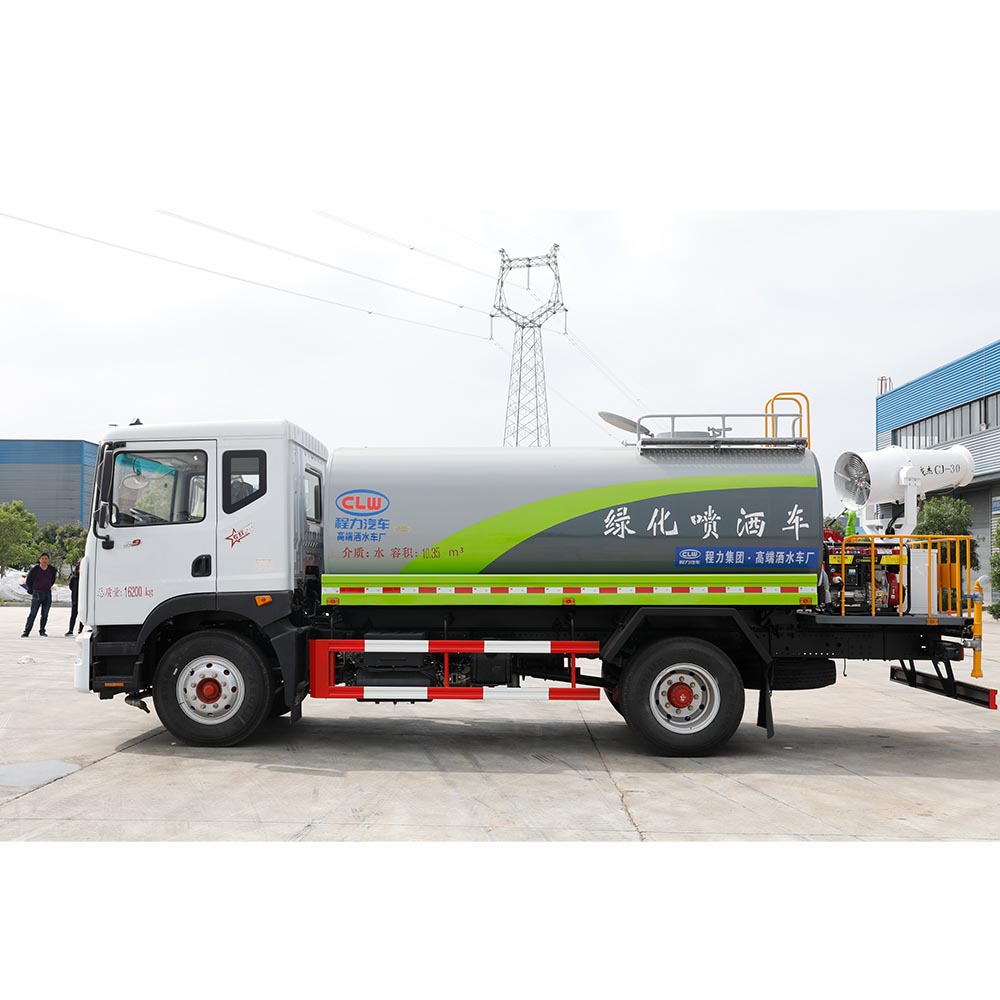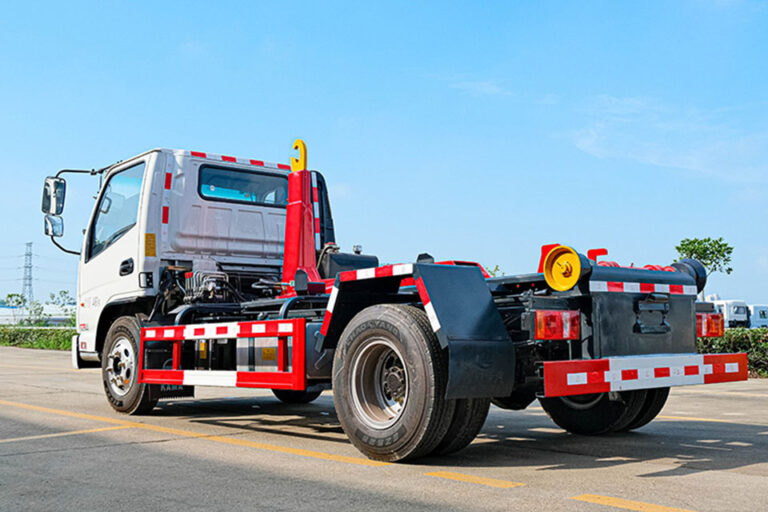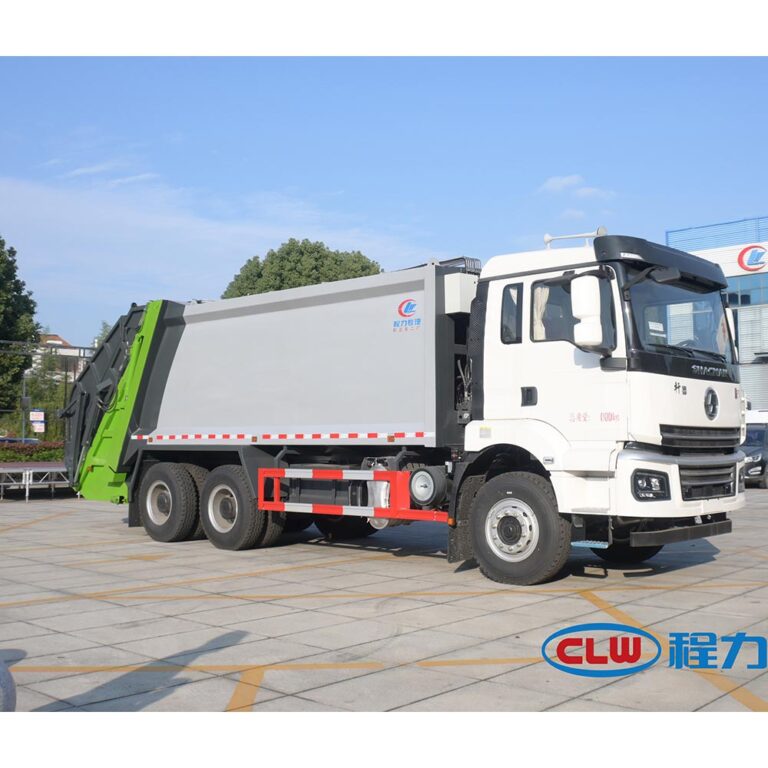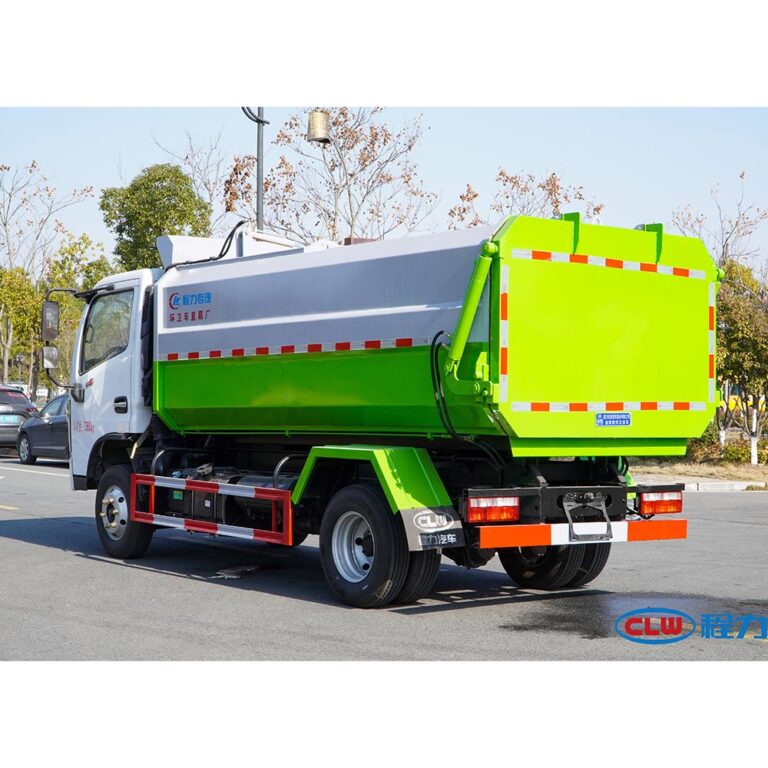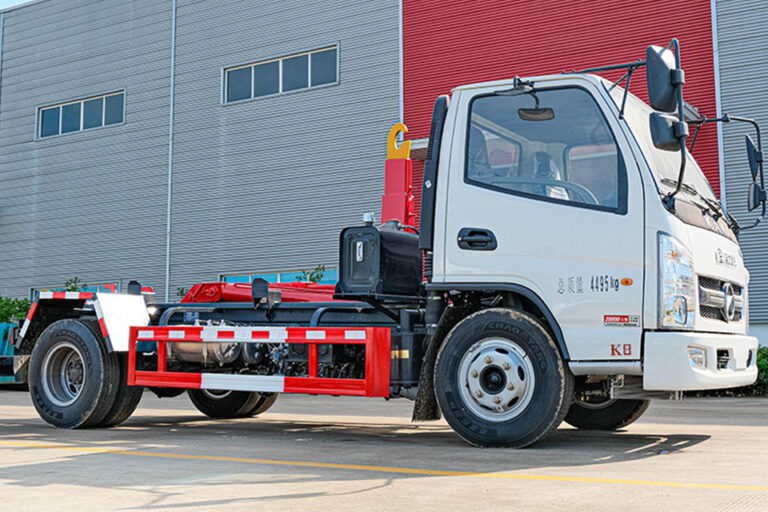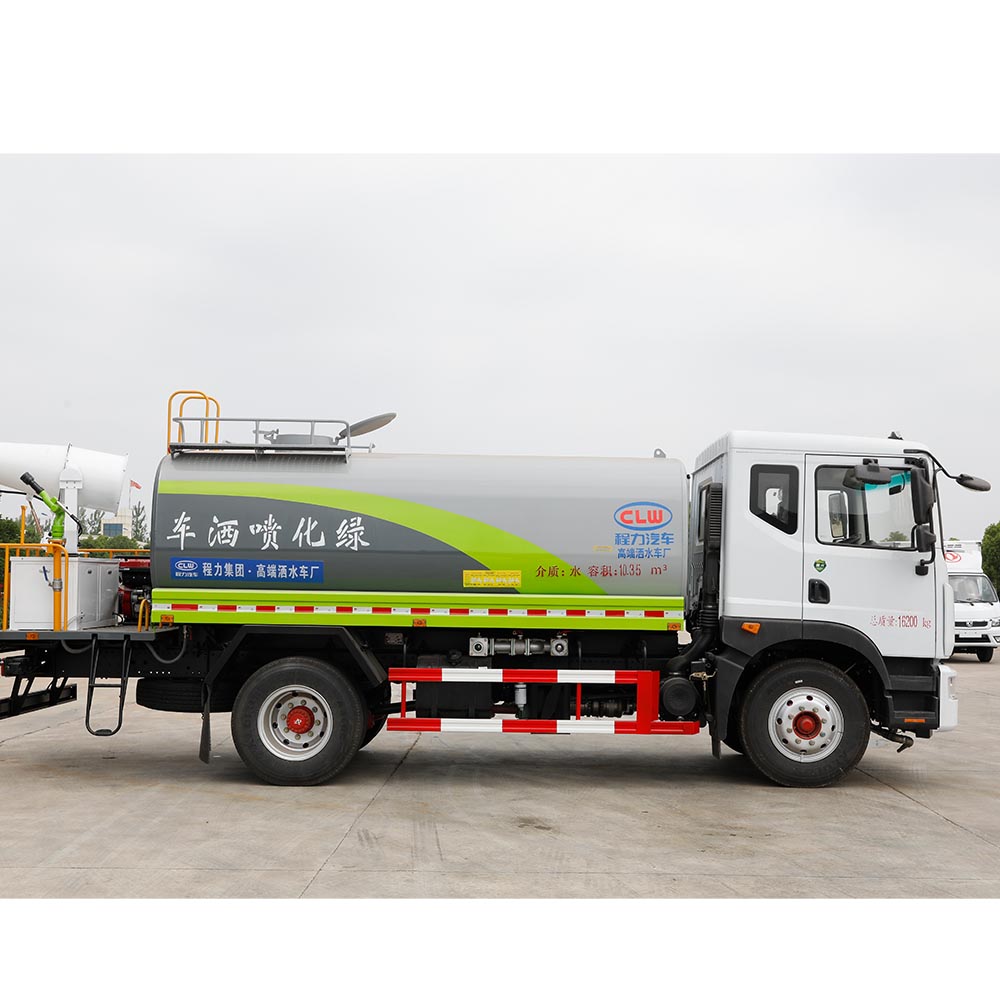
quanta água pode transportar um camião-cisterna
Camião de água: Tudo o que precisa de saber sobre este veículo essencial
Este artigo apresenta uma panorâmica geral de camiões de águaA nossa equipa de investigação está a explorar as suas diversas aplicações, os vários tipos e os factores críticos a ter em conta ao escolher o mais adequado às suas necessidades. Quer se trate de construção, agricultura, exploração mineira ou assistência em catástrofes, compreender as nuances da camiões de água é essencial para otimizar as operações e garantir a eficiência. Continue a ler para descobrir por que razão este artigo é de leitura obrigatória para quem pretende tirar partido do poder da camiões de água efetivamente.
Índice
O que é um camião de água e porque é importante?
A camião de água é um veículo automóvel especializado com uma grande tanque Concebido para carregar e transportar água. Estes camiões são essenciais em vários sectores de atividade em que é necessário um água é necessário, como por exemplo construção e exploração mineiraA importância da proteção contra incêndios e catástrofes. A importância da camiões de água decorre da sua capacidade de fornecer um serviço móvel água assegurando que as operações podem continuar sem problemas mesmo em locais com acesso limitado a água. São particularmente importantes para pó supressão em estaleiros de construção, compactação do solo, irrigação na agricultura e no fornecimento de água potável em situações de emergência.
Camiões de água oferecem um meio fiável de distribuição de água e desembolso de água onde não existem infra-estruturas permanentes. Estão equipados com caraterísticas como bicos de pulverização para controlo água tornando-os ferramentas versáteis para diferentes aplicações. Como um camião cisterna compreendemos o papel crítico que estes veículos desempenham e estamos empenhados em produzir veículos de alta qualidade.camiões-cisterna de qualidade que satisfazem as diversas necessidades dos nossos clientes.
Quais são os diferentes tipos de camiões de água disponíveis?
Existem vários tipos de camiões-cisternaCada um deles foi concebido para fins específicos. Os tipos mais comuns incluem camiões de água, todo-o-terreno camiões de águae unidades especializadas como o vácuo camiões ou varredores de rua com água capacidades de pulverização. Padrão camiões de água são normalmente utilizados para aplicações em estrada, enquanto os modelos todo-o-terreno são construídos para enfrentar terrenos acidentados em áreas como minas ou construção em grande escala sítios.
O camião-cisterna parte destes camiões também podem variar. Alguns têm uma única e grande tanque, enquanto outros têm compartimentos separados para transportar diferentes tipos de líquidos, se necessário. A escolha entre tipos de camiões-cisterna depende do sector específico e da natureza do transporte por água necessário. Camiões-cisterna pequenos pode ser adequado para tarefas ligeiras, enquanto que indústrias como a mineira ou grandes projectos de construção exigiriam camiões com maior capacidade. Por exemplo, oferecemos o Caminhão de reabastecimento Furika Tanque de combustível de 8,5m³, motor de 170HPA embarcação é conhecida pela sua conceção robusta e pela sua eficiência em termos de consumo de combustível, sendo ideal para operações que necessitem de capacidades de reabastecimento em paralelo com o transporte por água.
Que quantidade de água pode conter um camião de água típico?
O montante de água a camião de água pode conter varia muito, dependendo do seu tamanho e conceção. Tipicamente, camiões de água pode conter entre 2.000 e 6.000 Galões americanos. Alguns grandes navios-tanque podem conter ainda mais, com capacidades superiores a 10.000 galões. O capacidade é um fator crucial a considerar, uma vez que tem um impacto direto na eficiência das operações. Por exemplo, uma empresa de 4.000camião de água de galão necessitará de menos deslocações para reabastecer do que um aparelho de 2.000galão poupando tempo e combustível.
O peso bruto do veículo (GVWR) também influencia a forma como muita água a camião pode transportar. O GVWR inclui o peso do camião, o tanquee o água. Uma norma galão de água pesa cerca de 8,34 libras, pelo que um veículo de 4.000galão de água tanque acrescenta cerca de 33.360 libras ao do camião peso. A compreensão destes valores é essencial para um funcionamento seguro e legal. Também oferecemos modelos como o Caminhão tanque de água Chengli D9 Tanque de 12,37m³que possui uma capacidade de depósito significativa, adequada para grandes necessidades de água.
Qual é a capacidade média de um camião-cisterna?
A média capacidade de um camião-cisterna normalmente varia de 2.000 a 4.000 galões. No entanto, isto pode variar significativamente consoante o do camião-cisterna utilização e conceção previstas. Por exemplo, reboques-cisterna concebidos para o transporte rodoviário podem ter uma média mais elevada capacidade em comparação com os mais pequenos e mais ágeis camiões utilizado para navegar em espaços apertados em estaleiros de construção.
Tamanhos dos depósitos são frequentemente personalizados para satisfazer necessidades específicas da indústria. Os nossos reservatório de água a fábrica produz tanques concebido para otimizar capacidade de carga mantendo a estabilidade e a segurança. Por exemplo, um reboque cisterna pode ser 198″ de comprimento x 96″ de largura x 64,75″ de altura, oferecendo um equilíbrio entre volume e manobrabilidade. Por exemplo, o nosso Camião de pulverização verde | Controlo de poeiras potente | Tanque de 12,32m³ foi concebido para um controlo ótimo das poeiras graças à sua grande capacidade de depósito.
Como escolher o camião de água certo para as suas necessidades?
Escolher um camião de água envolve a avaliação dos seus requisitos operacionais específicos. Considere o volume de água que terá de transportar regularmente, o terreno onde o camião funcionará, e quaisquer caraterísticas específicas necessárias, tais como bicos de pulverização ou bombas para água desembolso. Escolher um camião de água envolve a consideração de factores como tanque tamanho, chassis tipo, potência do motor (por exemplo, gasóleo), e se precisa de um modelo de estrada ou todo-o-terreno.
Considerar a distância e a frequência de água transporte. Se precisar de transportar água em longas distâncias, um camião com uma maior tanque e é aconselhável um motor potente. Para uma utilização fora de estrada, é necessário assegurar que o camião tem um robusto chassis e sistema de suspensão para lidar com terrenos acidentados. Outra consideração vital é a facilidade de carga e descarga de água. Caraterísticas como bombas de alta potência e bicos de pulverização pode aumentar significativamente a eficiência operacional. Os nossos Caminhão multifuncional antipoeira Chengli é um exemplo perfeito, equipado com caraterísticas avançadas para um controlo eficiente das poeiras.

Para que são utilizados os camiões de água?
Camiões de água são utilizados para transporte de água para diversos fins em vários sectores. Eis algumas aplicações comuns:
- Construção: Camiões de água são vitais em estaleiros de construção para controlo de poeiras, compactação do soloe mistura de betão. Ajudam a manter a qualidade do ar e asseguram a integridade estrutural dos trabalhos de terraplenagem.
- Exploração mineira: Nas actividades mineiras, camiões de água suprimem as poeiras geradas por perfurações e explosões, melhorando a visibilidade e reduzindo os riscos para a saúde dos trabalhadores.
- Agricultura: Camiões de água fornecer irrigação para as culturas, especialmente em zonas com água ou durante as estações secas.
- Combate a incêndios: Os bombeiros utilizam camiões de água para complementar as suas água particularmente nas zonas rurais, onde as bocas de incêndio podem ser escassas.
- Ajuda em caso de catástrofe: Camiões de água entregar água potável às zonas afectadas por catástrofes naturais ou emergências, assegurando que as comunidades tenham acesso a água potável água.
- Limpeza de ruas: Alguns camiões de água estão equipados com mecanismos de varrimento e pulverizadores de alta pressão para limpar as ruas e remover os detritos.
| Aplicação | Descrição |
| Construção | Controlo de poeiras, compactação de solos, mistura de betão |
| Exploração mineira | Supressão de poeiras, melhoria da visibilidade, redução dos riscos para a saúde |
| Agricultura | Irrigação das culturas, especialmente em zonas com recursos hídricos limitados ou durante as estações secas |
| Combate a incêndios | Completar o abastecimento de água, nomeadamente nas zonas rurais |
| Ajuda em caso de catástrofe | Fornecer água potável a zonas afectadas por catástrofes naturais ou emergências |
| Limpeza de ruas | Equipados com mecanismos de varrimento e pulverizadores de alta pressão para limpar as ruas e remover os detritos |
Porque é que os reservatórios cilíndricos são preferidos para os camiões de água?
Tanques cilíndricos são preferidos para camiões de água devido à sua integridade estrutural e eficácia na distribuição do peso. A forma redonda elimina pontos fracos que possam comprometer o do tanque força sob pressão. Esta conceção também ajuda a manter uma centro de gravidade, reforçando a do camião estabilidade, especialmente no transporte de grandes volumes de água. A superfície curva de um tanque cilíndrico distribui uniformemente o da água peso, reduzindo o stress sobre o tanque e o chassis do camião.
Para além disso, reservatórios cilíndricos facilitar melhor água fluxo durante carga e descarga, minimizando o risco de derrames ou irregularidades água distribuição que poderia afetar a do camião equilíbrio. A forma também facilita a limpeza e a manutenção, garantindo o tanque permanece em condições óptimas. O nosso compromisso com a qualidade garante que cada camião-cisterna que produzimos cumprem estes elevados padrões, incluindo modelos como o Transportador de óleo comestível 25.6m³ CapacidadeConcebido para o transporte seguro de vários líquidos.
O que devo procurar num camião-cisterna de qualidade?
Ao selecionar um camião-cisterna de qualidade, considere os seguintes factores:
- Material: O tanque devem ser feitos de materiais duráveis, como o aço ou o alumínio, capazes de suportar os rigores de uma utilização intensa e de resistir à corrosão.
- Construção: Procurar tanques com costuras reforçadas e deflectores para evitar água de se deslocar durante o transporte, o que pode afetar a do camião estabilidade.
- Capacidade: Assegurar que o capacidade do depósito satisfaz as suas necessidades operacionais. Considere as capacidade máxima vai precisar e escolher um tanque que o possa suportar confortavelmente.
- Caraterísticas: Procure caraterísticas adicionais como bombas de alta qualidade, bicos de pulverizaçãomangueiras e sistemas de controlo que melhoram o do camião funcionalidade.
- Reputação do fabricante: Escolha um fabricante de renome, conhecido por produzir produtos fiáveis e duradouros camiões de água. Como líder camião cisterna Na nossa fábrica, orgulhamo-nos de fornecer produtos de primeira qualidade que cumprem os mais elevados padrões da indústria.
Tabela: Principais caraterísticas a procurar num camião-cisterna de qualidade
| Caraterística | Descrição |
| Material | Materiais duradouros como o aço ou o alumínio para maior longevidade e resistência à corrosão |
| Construção | Costuras e deflectores reforçados para evitar a deslocação da água e garantir a estabilidade |
| Capacidade | Capacidade do depósito que satisfaz as suas necessidades operacionais, tendo em conta o volume máximo exigido |
| Caraterísticas | Bombas, bicos de pulverização, mangueiras e sistemas de controlo de alta qualidade para uma funcionalidade melhorada |
| Fabricante | Fabricante de renome conhecido por produzir camiões de água fiáveis e duradouros |
Como é que a capacidade dos camiões de água afecta a eficiência operacional?
O capacidade de um camião de água tem um impacto significativo na eficiência operacional. A camião com uma maior tanque pode transportar mais água numa única viagem, reduzindo a frequência dos reabastecimentos e poupando tempo e combustível. Isto é particularmente importante em operações de grande escala, como a exploração mineira ou a construção, em que é necessário um abastecimento contínuo de água A oferta é crucial. No entanto, é essencial equilibrar capacidade com o do camião manobrabilidade e o terreno em que vai operar. A camião com um valor demasiado elevado capacidade pode ser difícil de navegar em espaços confinados ou em terrenos irregulares.
Camiões de água com maior capacidade são geralmente mais rentáveis para grandes projectos, uma vez que minimizam o tempo de inatividade e aumentam a produtividade. Podem também reduzir o número de camiões necessários no local, simplificando as operações e reduzindo os custos de mão de obra. A nossa gama de camiões de água inclui modelos com diferentes capacidades, permitindo-lhe escolher o que melhor se adapta às suas necessidades operacionais. Os nossos Caminhão de óleo de liga de alumínio 25.5m³ é um excelente exemplo de um veículo de grande capacidade concebido para ser eficiente.
Onde posso encontrar camiões de água fiáveis para as minhas operações?
Encontrar uma empresa de confiança camião de água envolve a pesquisa de fabricantes e concessionários de renome especializados nestes veículos. Procure empresas com um historial comprovado de produção de veículos de alta qualidade.camiões-cisterna de qualidade e prestar um excelente serviço ao cliente. Como camião cisterna fábrica, oferecemos uma vasta gama de camiões de água concebidos para satisfazer as diversas necessidades dos nossos clientes. Os nossos camiões são construídos de acordo com os mais elevados padrões, garantindo durabilidade, fiabilidade e um desempenho ótimo.
Pode explorar o nosso inventário online, onde encontrará especificações detalhadas e imagens dos nossos vários modelos. Também fornecemos orientação especializada para o ajudar a escolher o modelo certo. camião para as suas necessidades específicas. Além disso, considere a possibilidade de participar em feiras e exposições do sector, onde pode ver diferentes camiões de água pessoalmente e falar diretamente com os fabricantes e revendedores. Não hesite em pedir referências e testemunhos de outros clientes para avaliar a fiabilidade e o desempenho do camiões que está a considerar.
FAQs
Qual é o tempo de vida típico de um camião de água?
O tempo de vida típico de um camião de água depende de factores como a qualidade de construção, a manutenção e a utilização. Em geral, um aparelho bem conservado camião de água pode durar 10-20 anos ou mesmo mais. As inspecções regulares, as reparações atempadas e o funcionamento adequado são fundamentais para maximizar a sua vida útil.
Quanto custa um camião de água de 4.000 galões?
O custo de uma máquina de 4.000camião de água de galão varia consoante o fabricante, as caraterísticas e o facto de ser novo ou usado. Os preços podem variar entre $50.000 e mais de $150.000. É importante obter orçamentos de vários fornecedores e comparar preços e caraterísticas para tomar uma decisão informada. A camião de água de galão O preço é influenciado por muitos factores e é difícil fornecer um número exato sem conhecer todos os parâmetros.
Os camiões de água podem ser utilizados para transportar outros líquidos que não a água?
Enquanto camiões de água são essencialmente concebidos para transporte de águaAlguns modelos podem ser utilizados para transportar outros líquidos não corrosivos. No entanto, é fundamental garantir que o tanque O material e os componentes são compatíveis com o líquido que está a ser transportado. Após o transporte de outros líquidos, é necessário limpar a cisterna antes de a transportar água. Utilizar um camião de água para transportar gás de petróleo liquefeito, produtos químicos industriais ou outros tipos de carga líquida não é recomendado e não deve ser efectuado. Camiões de água são utilizados para transporte de água e não deve ser utilizado para transporte outros líquidos, pois podem danificar o tanque.
Qual é a diferença entre um camião de água e um reboque de camião cisterna?
A camião de água é um veículo autónomo com um tanque, enquanto um reboque de camião-cisterna é um ficheiro separado tanque unidade que precisa de ser rebocada por um camião ou trator. Reboques-cisterna têm tipicamente uma maior capacidade do que camiões de água e são muitas vezes utilizados para longas distâncias água transporte.
Que tipo de manutenção requerem os camiões de água?
Camiões de água requerem uma manutenção regular para garantir um desempenho e uma longevidade óptimos. Isto inclui a inspeção do tanque para detetar fugas ou danos, verificar a bomba e bicos de pulverização para um funcionamento correto, e a manutenção do do camião motor, travões e outros componentes.
Como posso determinar a capacidade do camião de água adequada às minhas necessidades?
Para determinar o direito capacidade do camião de água para as suas necessidades, considere a escala das suas operações, a frequência de água transporte necessário e as distâncias envolvidas. Para projectos de grande escala, como grandes estaleiros de construção ou extensas terras agrícolas, um camião com uma capacidade de 4.000 galões ou mais podem ser necessários para minimizar as viagens de recarga e maximizar a eficiência.
Conclusão
- Camiões de água são activos indispensáveis em numerosas indústrias, fornecendo água soluções onde quer que sejam necessárias.
- Compreender os diferentes tipos, capacidades e caraterísticas dos camiões de água é crucial para tomar uma decisão informada que se alinhe com as suas necessidades operacionais.
- Escolher o melhor camião de água pode aumentar significativamente a eficiência, reduzir o tempo de inatividade e contribuir para o sucesso dos seus projectos.
- Como líder camião cisterna Estamos empenhados em produzir produtos de alta qualidade e fiáveis. camiões de água que satisfazem as diversas necessidades dos nossos clientes.
- Quer se trate de construção, exploração mineira, agricultura ou assistência em caso de catástrofe, investir no equipamento certo camião de água é uma decisão estratégica que pode gerar retornos substanciais.
Lembre-se, quando se trata de camiões de água, qualidade, capacidadeA segurança e a fiabilidade são fundamentais. Contacte-nos hoje para saber mais sobre a nossa gama de camiões de água e como podem beneficiar as suas operações. Estamos aqui para lhe fornecer as melhores soluções para as suas transporte por água necessidades.
